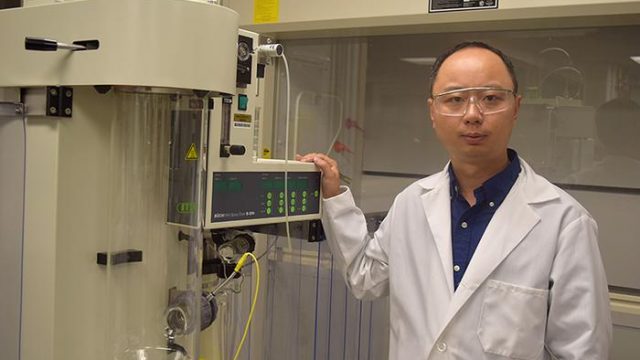Developing pharmacy services for menopause management

Deborah Evans is a pharmacist and independent prescriber who specialises in women’s reproductive and sexual health, including the menopause. She owns and runs Remedi Health, an independent pharmacy and healthcare clinic in Winchester. In this series of short videos, she describes the menopause clinic and the guiding principles behind it.
How menopause affects women and why we should offer treatment
There is a considerable unmet need for menopause services. “I think at the moment the data suggests only about 15% of women are prescribed hormone replacement – that’s 85% of women who are not, she says.
Menopause symptoms can be many and varied as all body systems adjust to declining hormone levels. They can include physical effects such as hot flushes, joint pains and genitourinary syndrome of menopause, cognitive effects such as brain fog and memory loss and mental effects such as anxiety and depression.
Long-term hormone deficiency itself carries risks including increased risks of cardiovascular disease (e.g. heart attacks and strokes), type 2 diabetes, osteoporosis (where oestrogen replacement is a first-line therapy) and some cancers (e.g. bowel and bladder). In addition, there’s emerging evidence to suggest that Alzheimer’s disease increases as well.
“I think it’s really important to understand the role that HRT plays in addressing the symptoms that I’ve described …… Fundamentally unless we’re addressing the decline in hormones then we can’t fully address the symptoms”, says Mrs Evans.
How the benefits of hormone replacement therapy outweigh the risks
Despite fears raised by older studies there is no increased risk of blood clots or breast cancer when HRT is delivered using transdermal, body-identical oestrogen. In fact, HRT has a number of important beneficial effects.
Current data show that HRT
- reduces the risk of osteoporosis by between 26 and 37%
- reduces the risk of diabetes by 30%
- reduces the risk of coronary heart disease by 50%
- reduces risk of dementia by between 22 and 32%
- reduces the risk of age-related macular degeneration by a third
- reduces the risk of depression by 50%
- reduces the risk of all-cause mortality by 30%
“Women should be offered HRT unless there’s a good reason not to go on it, just based on the longevity and the health benefits long-term”, Mrs Evans says. The long-term health benefits are best achieved by starting HRT as soon as possible, but there is no limit on the length of time for which it can be taken and age per se is not a contra-indication.
The menopause clinic at Remedi Health offers detailed evaluation and follow up. HRT can be prescribed and supplied
Why you could add testosterone to menopause treatment
Testosterone is an important hormone for women and may need replacement alongside oestrogen and progesterone, says Mrs Evans. Replacing testosterone in menopausal women helps with brain fog, cognitive function, motivation, sharpness, confidence and memory, amongst other things.
At present there is no licensed testosterone product for use in women in the UK, although this could change in the future, says Mrs Evans. In the meantime, the options are either to use (off-label) the UK product that is licensed for use in men or to use a product that is licensed for women in Australia. She favours the use of the Australian product that has been designed for women, noting that there are practical difficulties in using the UK-licensed male product.
Choosing a transdermal oestrogen and tackling genitourinary syndrome of menopause
Transdermal oestrogen products and the management of genitourinary syndrome of menopause are two important topics in menopause management. Selecting the most appropriate treatments should take into account individual needs and preferences.
There are three different formulations of transdermal oestrogen – patches, gels and spray. Women need to be aware of the pros and cons of each of these so that they can decide which will be best for them.
Genitourinary syndrome of menopause’ (GSM) describes the vulvovaginal and urinary tract symptoms caused by thinning and shrinking of the tissues of the vulva, vagina, urethra, and bladder as a consequence of oestrogen deficiency. Appropriate care for GSM is part of keeping a woman in good health. The topical transdermal oestrogens – will help but many women find that they need local oestrogen therapy delivered as a cream, pessaries or a slow-release device. “We’ve seen a lot of women who’ve had significant, life-changing [effects]” as a result of local oestrogen therapy, Mrs Evans explains.
Tips for building a successful pharmacy menopause service
Working in the menopause clinic is professionally rewarding and there is a wealth of resources available for keeping up-to-date. Awareness of the latest evidence and the ability to provide good quality, sound information is key to a successful service says Mrs Evans. She recommends that colleagues should be menopause-aware whatever their area of interest or specialty practice. She advocates the use of a menopause tracker app for patients such as the Balance tracker from Newson Health.
Deborah Evans’ closing message to everyone is: “I think there are many myths out there about menopause and HRT – so make sure that you’re well-informed. That’s not just from the social media ….., it’s actually looking at making sure that the evidence that you’re looking at is good quality, sound evidence with the appropriate data behind it”.
About Deborah Evans
Deborah Evans is a pharmacist independent prescriber who specialises in women’s reproductive and sexual health, including the menopause. She owns and runs Remedi Health, a clinic in Winchester, Hampshire. She combines the roles of Clinic Director, Superintendent Pharmacist and hands-on practitioner.
Read and watch the full series on our website or on YouTube.




